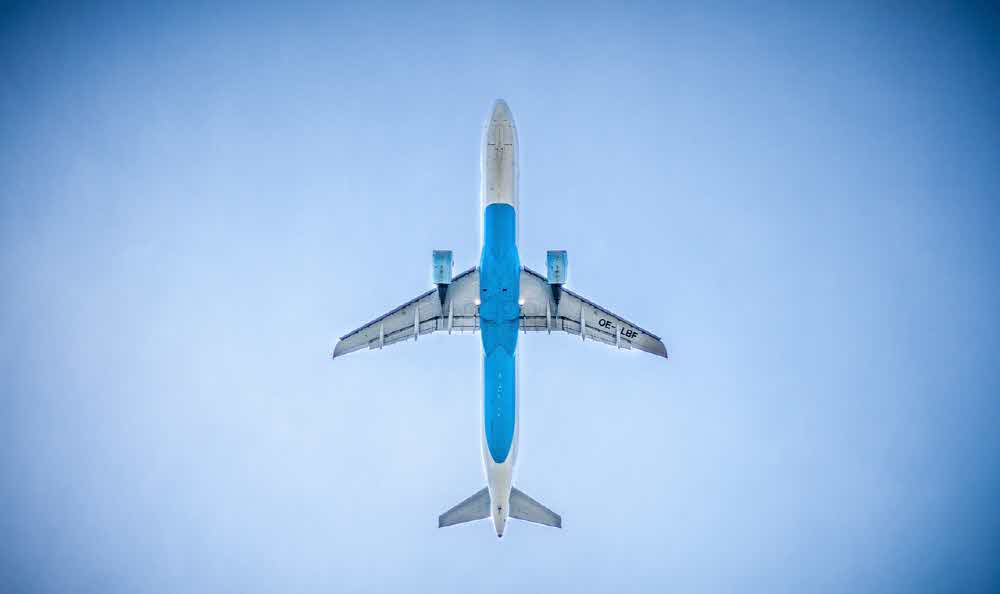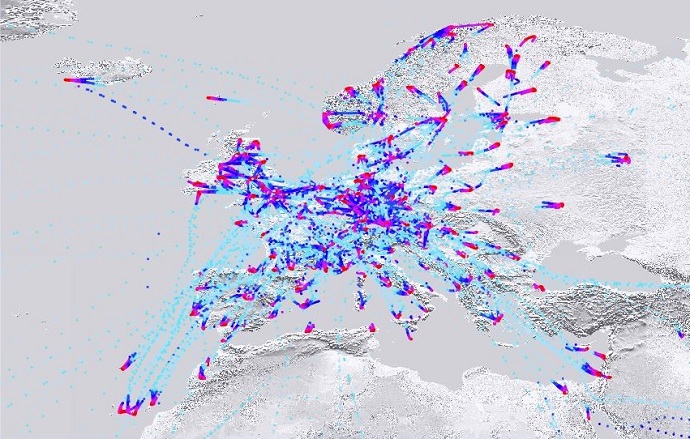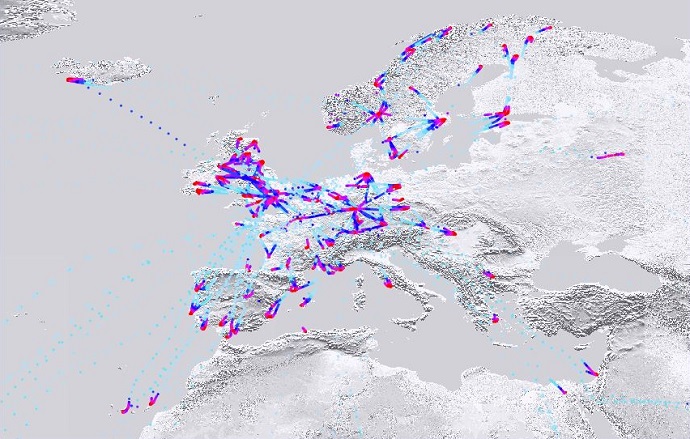
With Corona 19 becoming a global pandemic, flight cancellations are continuing. To prevent the spread of the virus, countries are calling for strict travel restrictions and securing social distancing. For this reason, airlines are being hit hard. The US Southwest Airlines boarding rate is only 20%. Delta Air Lines also said that the sharp decline in demand has never been seen before. British low-cost carrier EasyJet has already canceled all flights.
However, it is said that such a reduction in the number of flights could affect not only the aviation industry losses but also weather accuracy. In fact, aircraft are always sending data to the weather forecast center. The number of data that can be sent per unit per day reaches 230,000, and it provides the only clue to the state of the upper atmosphere on the ground. Information such as atmospheric pressure, temperature, and cloud height is important for any weather forecast. Thanks to this weather data sent from the aircraft, there are studies that show that the rate of weather forecast errors decreased by 15% to 30% every 6 hours.


In a press release released by ECMWF, the European Mid-term Forecast Center on March 24, it is said that aircraft weather data is important after satellite data, and if the amount of information decreases in the future, it may lead to poor weather forecast accuracy. ECMWF operates a globally high-precision weather prediction model called the Euro, but if the aircraft weather data is cut off, the weather caster may be blinded by using the Euro.
According to the ECMWF, the number of aircraft flying over Europe for 23 days starting from March 3 has decreased by 65 compared to the previous year, and a decrease of 42% worldwide. Amid the decline in aircraft information, the recently introduced meteorological satellite forces are expected to supplement some, but as long as the Corona 19 pandemic does not decrease in the future, the number of planes will continue to decrease, which may affect the accuracy of weather forecasts.
Unfortunately, ECMWF said that Corona 19 has an unintended effect on the weather industry, and if the number of flights is reduced, the amount of data input into the numerical weather prediction model will be limited and the accuracy of the weather forecast will decrease. The U.S. Meteorological Administration’s NWS, which operates GFS, a competitor of this ECMWF weather forecasting model, says the impact of aircraft reduction cannot be quantified at this time. Aircraft declines are only happening on some limited flights and routes, and freighter data are not yet affected. Weather forecasts automatically coming from civil aircraft are useful information for weather prediction models, but at the same time, huge amounts of observation data are acquired from various sources such as ground stations, radars, satellites, and marine meteorological instruments. It explains that it does not reduce the accuracy.
The NWS says it expects to close the information gap due to the decline in civilian aircraft, as it plans to introduce a new meteorological satellite force soon. In any case, the amount of data supplied to the US aircraft meteorological data transmission system US AMDAR in the next few weeks will be significantly reduced, so it is possible to have any effect on the numerical weather prediction model. Related information can be found here .

